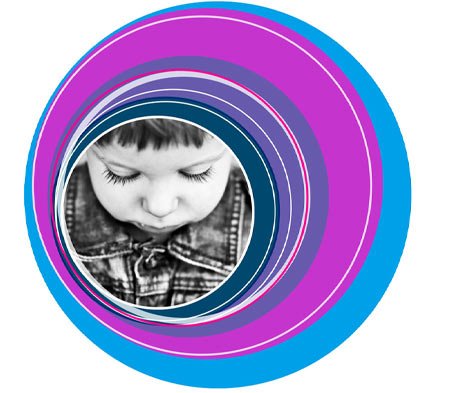
Children
B12 deficiency affects all people of all ages, including children. A baby in the womb can be affected by B12 deficiency and so can a newborn.
It is crucial to have your child tested if B12 deficiency is suspected.
Vitamin B12 deficiency is a progressive condition; the longer that a diagnosis and any subsequent treatment takes to begin, the greater the likelihood of permanent, long-lasting damage to the myelin sheath surrounding the nerves. There should be no delay in diagnosis and treatment as symptoms in children may not be completely reversible.
Please try not to supplement with vitamin B12 before testing as this may skew results and delay diagnosis.
The following lists are shared with kind permission of Sally Pacholok.
Signs & symptoms in infants and children
- Developmental delay or regression
- Apathy – Irritability
- Hypotonia (decreased muscle tone)
- Weakness
- Tremor – trembling/shaking
- Involuntary movements
- Seizures (fits)
- Ataxia (Neurological disorder affecting balance, coordination and speech)
- Anorexia and other eating disorders
- Failure to thrive
- Poor weight gain
- Poor head growth
- Poor socialisation
- Poor motor skills
- Language delay
- Speech problems
- Lower IQ – Intellectual disability
- Anaemia – decrease in red cells or haemoglobin
- Macrocytosis (large red blood cells) Note – need not be present!
Red flags of B12 deficiency in infants, children and teenagers…
If your child exhibits any of the following signs or symptoms, insist that your doctor tests for B12 deficiency make sure to get a copy of the results. Please see Point 3 on the What to do next page for more information
- Movement problems, including difficulty in walking or writing
- Mental changes – irritability, altered mood, poor memory, “flat” emotional tone, autistic-like withdrawal
- Vision problems/abnormalities
- Slowed weight and height gain
- Leg pains or other abnormal sensations
- Fatigue
- Loss of appetite
- An abnormally small head circumference in infants or toddlers
- Apathy, lethargy, or irritability
- Involuntary movements, such as arm waving in infants or toddlers
- Tics
- Grey hairs / premature greying
- Areas of hypo pigmented skin in a Caucasian child and/or vitiligo, or areas of hyper pigmented skin in a black or Asian child
- A rooting reflex after eight months of age (this reflex is usually absent after six months of age)
- A history of any surgery (including dental surgeries) involving nitrous oxide. This anaesthetic agent is often administered during dental work or surgeries such as insertion of ear tubes in children with chronic ear infections, can inactivate the body’s stores of B12 and cause severe neurological damage
- Failure to thrive (poor appetite, poor growth and/or weight gain, general poor health)
- Chronic constipation
- A diagnosis of developmental delay, autism, cerebral palsy, Intellectual disability, or other neurological disorder
- Severe food allergies or sensitivities
- A diagnosis of coeliac disease or gluten enteropathy
- A thyroid disorder or other autoimmune disorder
- A history of stroke or a diagnosis of arteriosclerosis – thickening, hardening or loss of elasticity of the walls of blood vessels
- A diagnosis of any psychiatric or behavioural disorder including ADHD
- A diagnosis of Down’s Syndrome
Documentary on B12...
Elissa Leonard’s documentary on B12 deficiency features Lennon and JJ, two children who were permanently damaged through lack of early diagnosis and treatment of B12 deficiency.
Breastfeeding and Vitamin B12 deficiency...
Babies who are exclusively breast fed by mothers who are unaware that they are deficient in vitamin B12, can be at greater risk for developmental disability, such as loss of speech, social skills and motor skills. This is because your breast milk will not contain enough essential B12 when you don’t have enough, meaning that your infant then has a limited ability to receive B12. This is why diagnosis is crucial if you think you may be B12 deficient.
Time is of the essence...
Waiting for months on an NHS list to see a paediatrician could mean that the essential window for optimum recovery may be missed. Please visit our case studies page to read about Tom and JJ.
If your child is vegetarian or vegan...
If your child has a vegetarian or vegan diet, they have an increased risk of B12 deficiency. Please visit the vegetarian page and the causes page.
Testing and treatment...
Serum B12 levels in symptomatic children can often fall ‘within range’ please see Point 4 on the What to do next page to read about ‘false normal’ results and the risk of neurological damage without treatment. It is vital that you see a copy of blood results. you are legally entitled to these. Please see Point 3 on the What to do next page for more information.
There is a separate hydroxocobalamin BNF Guideline for children which should be pointed out to your GP.
If your doctor will not provide treatment based on your child’s symptoms, further tests must be carried out. For information on homocysteine, MMA and Active B12, please visit the testing page. Prior supplementation of B12 could skew test results so please let your doctor know this.
Further reading
Please find journals on B12 deficiency in infants and children and read about Inborn errors of B12 metabolism. Please see this link to Sally Pacholok’s website B12 Awareness.org Sally’s book, https://b12awareness.org/could-it-be-b12-an-epidemic-of-misdiagnoses/ and the Paediatric edition will provide a wealth of information. Sally has also written a book to help teach children about B12 deficiency, B12 Sally!
A few kind words …

You can help us to raise awareness of B12 deficiency in children with our strong organic shopper.
If I've helped please consider buying me a coffee/leaving a virtual tip.
Doing this helps me to offer this free website to you and others around the world.
Thank you, I really do appreciate it.
